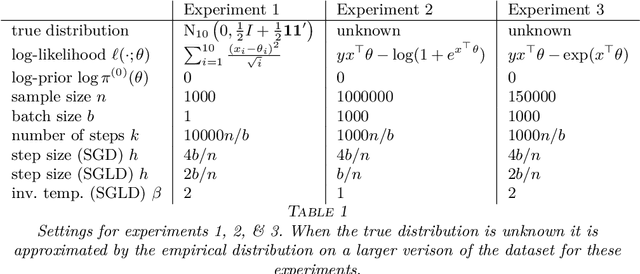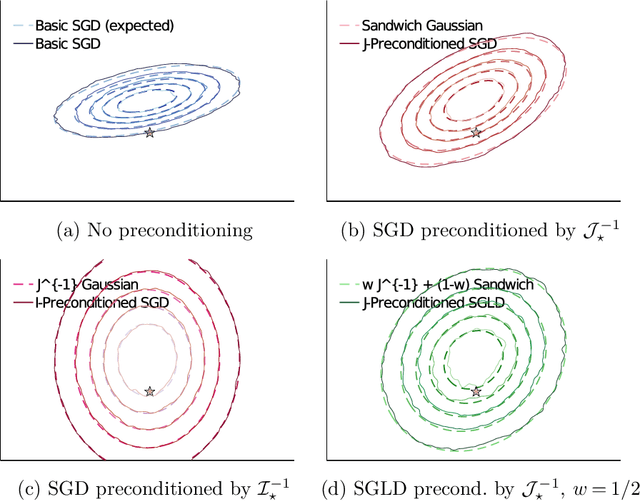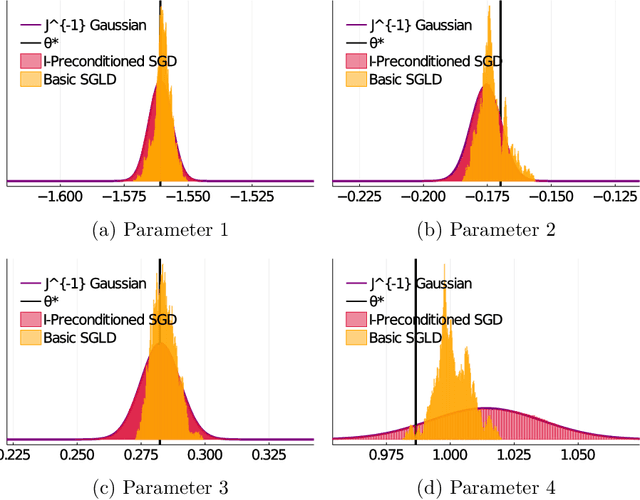Haoyue Feng
Statistical Inference with Stochastic Gradient Algorithms
Jul 25, 2022



Abstract:Stochastic gradient algorithms are widely used for both optimization and sampling in large-scale learning and inference problems. However, in practice, tuning these algorithms is typically done using heuristics and trial-and-error rather than rigorous, generalizable theory. To address this gap between theory and practice, we novel insights into the effect of tuning parameters by characterizing the large-sample behavior of iterates of a very general class of preconditioned stochastic gradient algorithms with fixed step size. In the optimization setting, our results show that iterate averaging with a large fixed step size can result in statistically efficient approximation of the (local) M-estimator. In the sampling context, our results show that with appropriate choices of tuning parameters, the limiting stationary covariance can match either the Bernstein--von Mises limit of the posterior, adjustments to the posterior for model misspecification, or the asymptotic distribution of the MLE; and that with a naive tuning the limit corresponds to none of these. Moreover, we argue that an essentially independent sample from the stationary distribution can be obtained after a fixed number of passes over the dataset. We validate our asymptotic results in realistic finite-sample regimes via several experiments using simulated and real data. Overall, we demonstrate that properly tuned stochastic gradient algorithms with constant step size offer a computationally efficient and statistically robust approach to obtaining point estimates or posterior-like samples.
 Add to Chrome
Add to Chrome Add to Firefox
Add to Firefox Add to Edge
Add to Edge